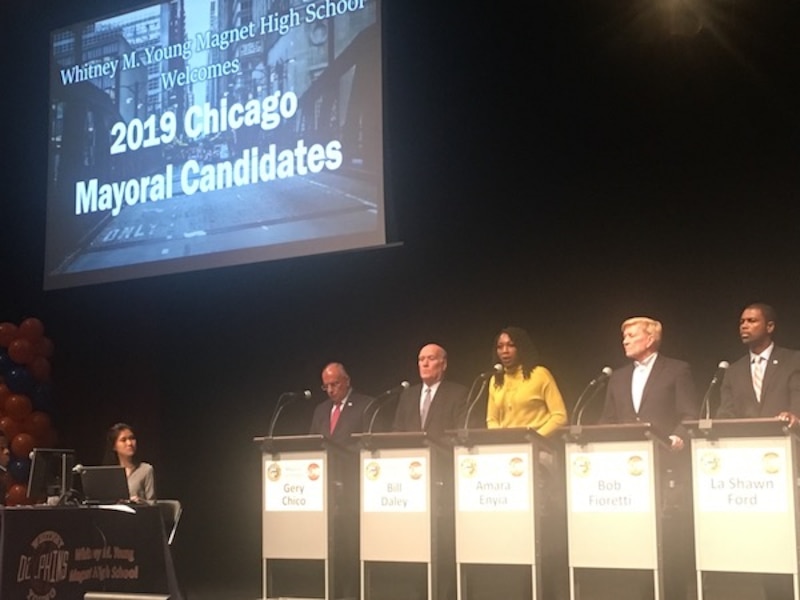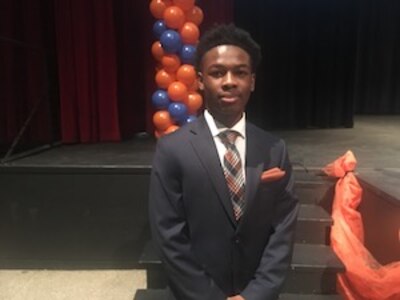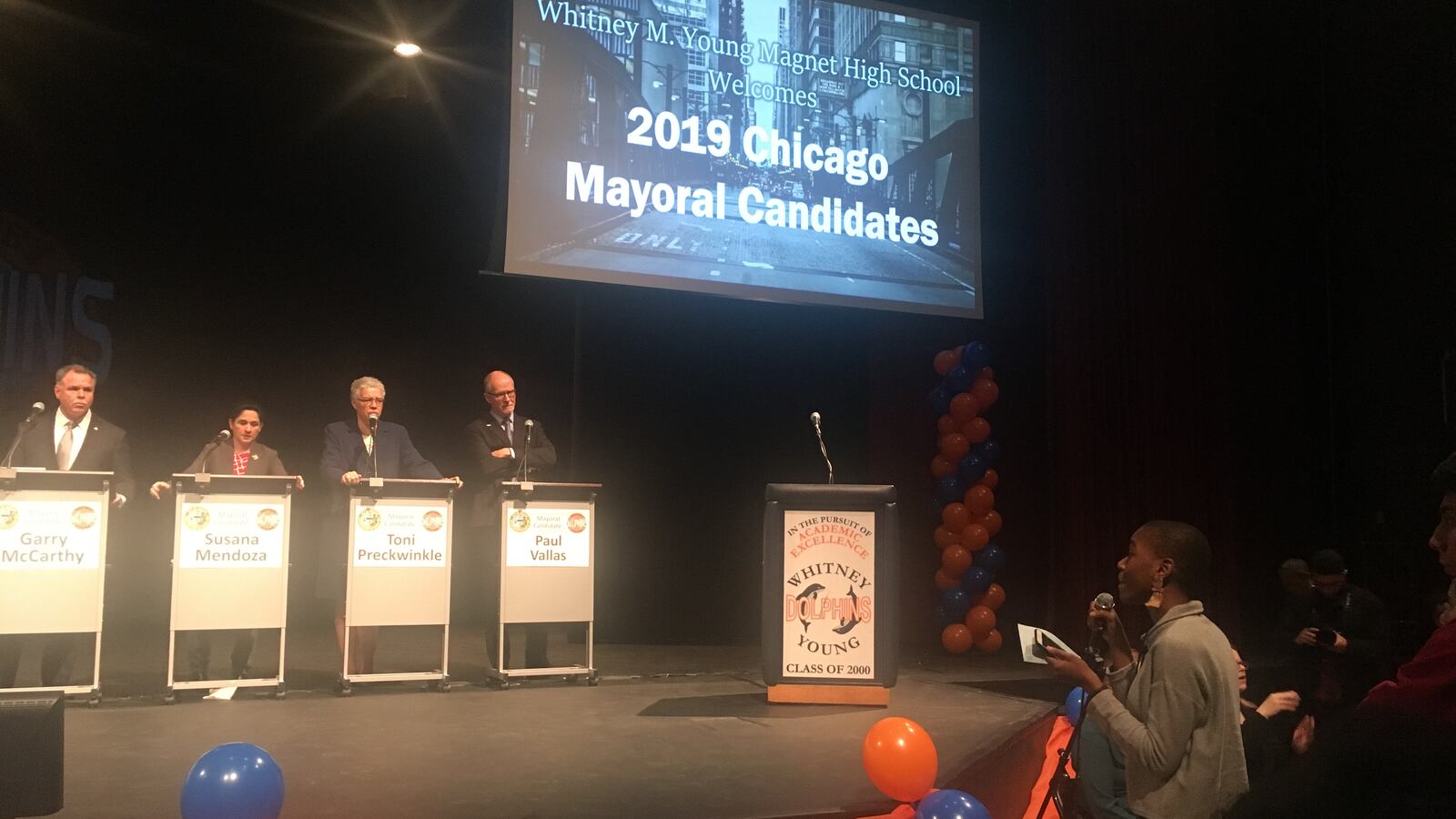The teenage moderators of a Thursday forum at Whitney Young High School may have been inexperienced, but they didn’t go soft on the 11 Chicago mayoral hopefuls who attended, quizzing them on everything from marijuana legalization to school closings and teacher union negotiations.
In particular, students honed in on policing in their communities and schools, something moderator and event organizer Caleb Dunson said reflected their experiences and concerns.
To repeated questions about a proposed $95 million police academy that Mayor Rahm Emanuel wants to build on the West Side, most of the candidates said they would oppose it — even former police chief Garry McCarthy, who called it “political spending.” The only clear supporters of the academy were Bill Daley and Mendoza, although Mendoza said she would support putting the facility in another neighborhood.
One student at the Near West Side high school asked how the candidates would address the “school-to-prison pipeline,” in which discipline on campus may set youths on a wayward path. Some students pointed out that many schools on the South and West Sides have more police and security guards than social workers and guidance counselors.
While Daley largely skirted the policing part of the question, he said hiring more school counselors is a place to start to address students social and emotional needs, not just their safety in schools.
“We’ve got to find a way to afford that, ” he said.
Amara Enyia, a proponent of reducing policing in schools, said many under-resourced schools are “in communities that have neglected for decades.”
All the candidates agreed that they would keep Chicago as a sanctuary city, and would not direct local law enforcement to enforce immigration laws. County board President Toni Preckwinkle repeated her vow to dismantle the city’s gang database. Former schools chief Paul Vallas said he would work to rebuild the city’s detective division and establish a witness protection program to deal with Chicago’s low murder clearance rate.

When it came to the question of whether they support closing more underenrolled or underperforming schools in Chicago, the candidates were split.
“Only if it made the situation better [for students],” said Gery Chico, an attorney and former school board president.
Five candidates answered a flat-out “no”: state representative La Shawn K. Ford, former police board president Lori Lightfoot, ex-police chief Gerry McCarthy, state comptroller Susana Mendoza and Preckwinkle.
Former alderman Bob Fioretti punted, answering that “once an elected school board is in place, they can decide.”
Enyia and Bill Daley pledged not to close schools in a community unless the community decides. John Kozlar said he would “not close, but repurpose schools.” Meanwhile, Vallas said, “Only if the community wants it, and only if there’s a plan to repurpose,” he said.
One student asked about how the candidates would handle contract negotiations with the Chicago Teachers Union, which released a 75-point list of demands this week, including a 5 percent raise. Lightfoot praised teachers but said “we can’t negotiate and give away dollars we don’t have.” McCarthy said teachers deserve to be paid more, but had hard words for the teachers union.
“If the CTU spent half as much time putting their efforts into making sure teachers teach, instead of their politics, we’d be in a much better place,” he said.
The candidates all said they would support legalizing and taxing recreational marijuana, which sent cheers through the crowd. Asked if they would support giving 16- and 17-year-olds the right to vote, only Daley said no.
Dunson, who helped organize and moderate the forum, called the event a success.

“Whitney Young is an amazing magnet school, but we have kids coming from some of the most under-resourced, underfunded communities in Chicago. They know what it’s like to feel inequity, and to feel oppression, and I think they were able to accurately speak to their experiences of that,” said Dunson, junior class president.
He said that the exposure to a candidates forum could be important for students later — and inform conversations at home this election cycle.
“Even if you aren’t voting,” said Dunson who at 16 can’t yet vote, “you are going back to your parents and you’re telling them what you saw at this forum.”

